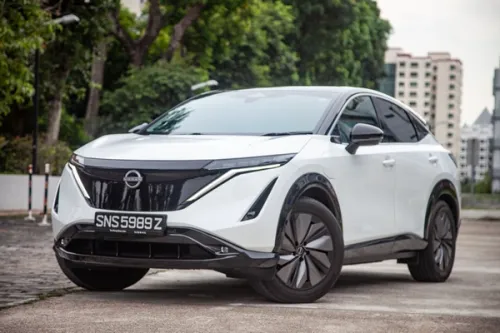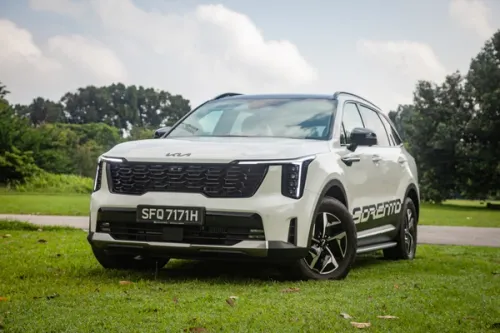Self-driving Cars Are Safe According to Developers
Cars are equipped with safety features such as cameras and sensors.

Despite recent reports of accidents involving driverless cars in the United States, a couple of companies developing autonomous vehicles (AV) said that such vehicles are generally safe to use.
Concerns about the safety of AVs were based on incidents earlier this year. In May, the driver of a Tesla Model S in Florida died in a crash while the car was in its autopilot mode. Back in March, one of Google's self-driving cars hit a bus in California.
Earlier this month, the Land Transport Authority (LTA) signed an agreement to collaborate with Delphi Automotive Systems, a UK-based company, and an local start-up nuTonomy.
nuTonomy has been testing the self-driving Mitsubishi i-MiEV at business park one-north since April. The vehicle has never been involved in an accident, and has been tested for both driving in rainy conditions and night driving.
"In 2017, we want to expand to other areas to test our cars and prove we can provide a safe and reliable service," said nuTonomy co-founder and chief technology officer Emilio Frazzoli. He also added that nuTonomy's AVs are designed to drive defensively and will slow down or stop in case they encounter difficult situations.
The AV is already capable of handling unpredictable elements such as avoiding swerving motorcycles without human intervention and is said to be capable of handling 80% of all local traffic conditions.
Both Delphi and nuTonomy have equipped their cars with the latest safety devices and systems to provide a wide range of vision including radar and lidar (light detection and ranging) systems. These safety features allow the AVs to detect other vehicles, pedestrians and obstacles in multiple directions. Although current speeds are limited to 30 km/h, nuTonomy expects AVs to travel at about 50 km/h when ready for public use.
One of the most important features required by LTA regulations include a complete manual override that would allow a driver to take full control of an AV in case of an emergency.
Later iterations of Delphi's AVs will have full remote control support, doing away with traditional car features such as the steering wheel. However, they will be equipped with emergency stop buttons that can bve activated if necessary.
Although nuTonomy's cars currently have a driver inside each vehicle for safety purposes, plans for having remote manual control is already in the works. "Eventually, we will have a remotely located safety driver who can give commands to the car," said nuTonomy chief operating officer Doug Parker.
Although developers agree that it may take time before the general public gets used to driverless cars, they are confident that people will quickly learn to enjoy the experience. "Once you've started using it, you'll think, why would I ever go back to driving if I don't have to?" said Delphi services vice president Glen W. De Vos .
Mr. De Vos also said they are expecting to have 40-50 AVs that have remote control support. On the other hand, nuTonomy expects to have 75 units operating in different parts of the country by 2018.
Passengers using the AVs will be able to pay their fares using credit cards or mobile wallet options such as Apple Pay. Because there is no driver, price rates could be much cheaper compared to traditional taxi services.
"When you take a cab or Uber, 40 to 50 per cent of the cost goes to compensating the time and effort of the driver," saud nuTonomy co-founder and chief technology officer Emilio Frazzoli. Other planned payment options include subscription-based models and a ride sharing option that allows commuters to share the fare and drive the prices down even further.
Credits:

- Convenient and Hassle-Free
- Consumer Protection
Transparent Process
With No Obligation


Get the Best Price for your used car
from 500+ dealers in 24 hours








